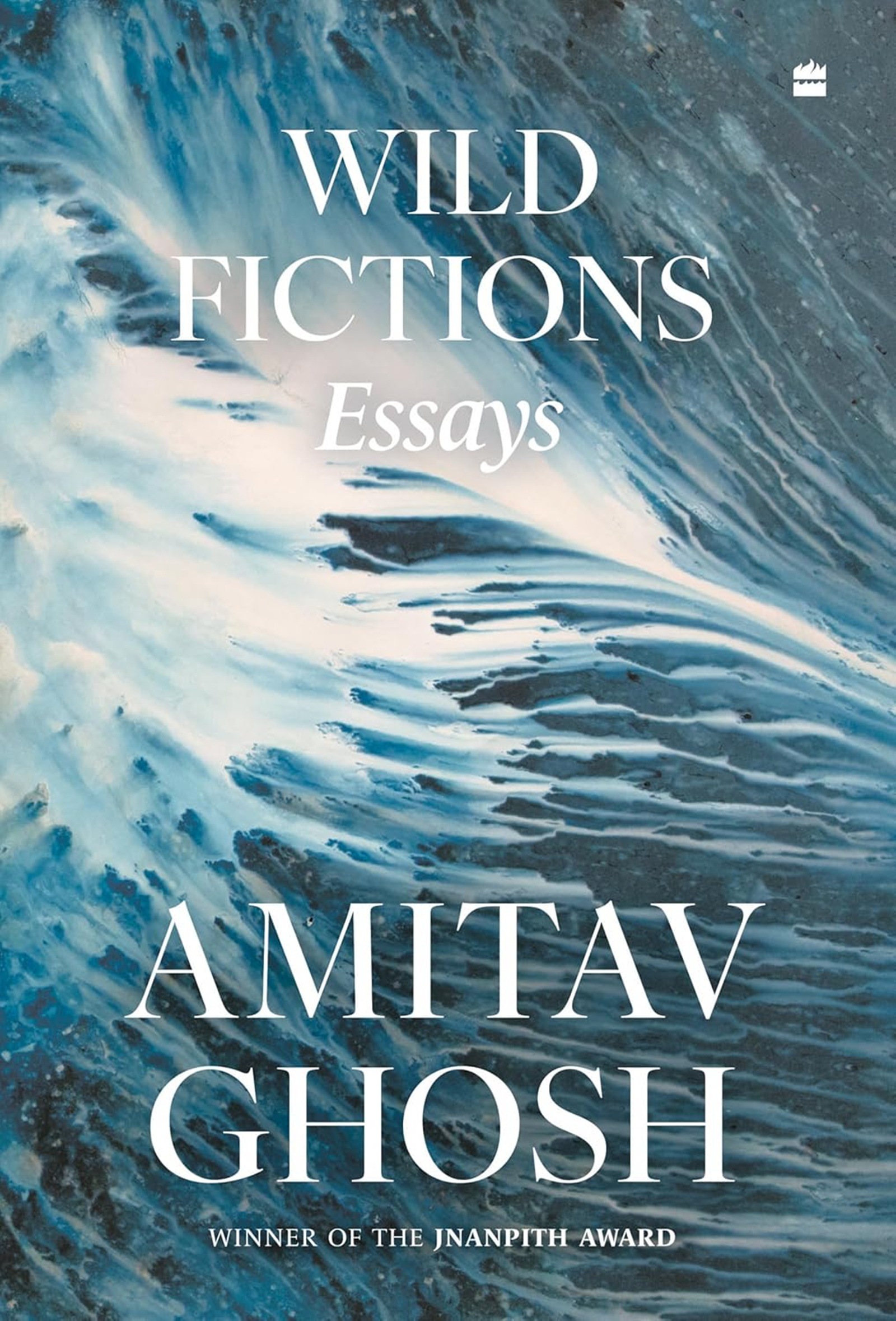Amitav Ghosh’s Wild Fictions is a heartfelt essay collection on how climate crises are shaping human activity
Like his works of fiction, the essays showcase what Ghosh is best at — lending an attentive ear to migrants, sailors, soldiers, tribal communities, friends, neighbours
 Ghosh underlines that migrants, whether they are from Africa or Asia, could also enrich their host cultures (Photo: Getty Images)
Ghosh underlines that migrants, whether they are from Africa or Asia, could also enrich their host cultures (Photo: Getty Images)Amitav Ghosh’s collection of essays, Wild Fictions, is an invitation to be part of the author’s journey as he seeks ways for a more caring and humane world. They traverse Ghosh’s arc as a writer who has cast a critical eye on the ways human societies relate to themselves and the environment. He questions certitudes on civilisation, progress and Eurocentric modernity and problematises the links of postcolonial societies with their colonial past. In his recent works, Ghosh has tried to join the dots between the world of the past three hundred years and perhaps the gravest challenge of our times — climate change. The world, as he puts it, quoting the Italian Marxist Antonio Gramsci, is entering a “time of monsters”, when an old era is dying and a new one is struggling to be born. “But the monsters that Gramsci had in mind were political creatures — fascists. What is distinctive about our time is that its monsters also consist of weather events that would have been considered improbable in Gramsci’s time — supercharged storms, megadroughts, catastrophic rain bombs and the like”.
Ghosh is aware of the pitfalls of a cause-and-effect narrative. He was trained as an anthropologist, but it’s well known that the writer is adept at looking at events through the eyes of a historian, environmentalist and climate scientist. Like his works of fiction, the essays showcase what Ghosh is best at — lending an attentive ear to migrants, sailors, soldiers, tribal communities, friends, neighbours. He isn’t a passive interlocutor, but a seeker who scans archives, diaries and correspondences and reaches out to his respondents to draw out the complexities of their experiences. He is alert to the changes brought out by the developments in communication technology and, most importantly, does not shy away from showing that the ecological is political. As with his works of fiction, the reader is struck by the wealth of Ghosh’s research. Those acquainted with his fiction will find familiar characters — Deeti from The Sea of Poppies (2008), the seafaring community Lascars from the Ibis trilogy, the legend of Bon Bibi from The Hungry Tide (2004).
At times, the writer lets the reader make connections. For instance, in one essay, he observes the tragedy of 9/11 through the eyes of friends — among them. architects of the Twin Towers — as one of them gives up his life trying to evacuate people from the crumbling skyscraper. In another essay at a different part of this collection, he gets a ringside view of the incident from his daughter who sees the buildings coming down from her classroom. The incident evokes memories of research he had conducted 20 years ago in Egypt as a doctoral student in Anthropology. The “uncanny feeling” deepens when he learns that Mohammad Atta, the leader of the 9/11 attack teams, hailed from the same region where he had done field work — “indeed his ancestral village was closely connected with the places I had worked”.
 Amitav Ghosh’s Wild Fictions (Amazon)
Amitav Ghosh’s Wild Fictions (Amazon)
What makes people undertake arduous and expensive journeys across continents? Hope of a better life? Displacement? The force of ideology? Community memory? Ghosh’s fiction abounds with such curiosity, and inevitably, the quest occupies a major part of this essay collection as well. Like in his novels, he eschews easy answers to underline that migrants — whether they are from the Indian Subcontinent, Africa, West Asia — could bear scars of the past and also enrich their host cultures with their ideas and enterprise.
A delightful essay — some of it, a reprise of a section in The Sea of Poppies — contemplates the etymology of the word ‘banyan’. Ghosh scorns marketers who try to brand the garment as “a sleeveless undershirt”, “singlet” or vest. Instead, he tries to find connections between the eponymous tree, the bania, the traveller, sailor and nawabs, and then locates the changing fortunes of the garment in the country’s economic trajectory.
Wild Fictions is about migration, ecological crises and conversations of Ghosh with fellow writers and academics. It’s also a travel book — about the journeys of communities, commodities and ideas. But if there’s one thing that unites the essays, it’s Ghosh’s criticism of Eurocentric modernity. In an exchange with historian Dipesh Chakrabarty, he draws links with modernity, colonialism and racism. In other essays, he asserts that current crises — whether events such as 9/11, the discomfiture with migrants in some parts of the world, the climate and ecological challenges — have to do with power structures created by modernity. Ghosh isn’t against modernity per se, but he does seem to believe that European hegemony has foreclosed alternative imaginations of progress. Ghosh doesn’t engage much with the large corpus of scholarly engagement with modernity. But in many ways, the writer is like Manmohan Mitra, the protagonist of Satyajit Ray’s trenchant critique of the modern civilisation, Agantuk (1991) – a seeker who amplifies the moral voice of some of his protagonists. He draws attention to myriad forms of inequalities — between humans and nature, between different worldviews, nations and peoples. And, he does so gently, without even a sentence in anger.



- 01
- 02
- 03
- 04
- 05




























